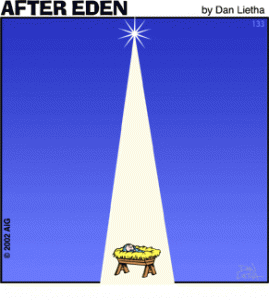 I quote the following article with this as a word of introduction:
I quote the following article with this as a word of introduction:
“The brothers immediately sent Paul and Silas away by night to Berea, and when they arrived they went into the Jewish synagogue. Now these Jews were more noble than those in Thessalonica; they received the word with all eagerness, examining the Scriptures daily to see if these things were so. Many of them therefore believed…” Acts 17: 10-12
Because a teaching or article is found here it should not necessarily imply that I would endorse everything written or taught by the author/speaker elsewhere. However, it does mean that what you find here has been a blessing to me.
The Scripture speaks of the noble attitude of the Bereans who (1) eagerly received the word but (2) tested it (even when the teacher was the Apostle Paul) – by comparing what they heard with the word of God. I would ask you to employ the very same discipline or methodology in all you hear or read. This should be the case both for my articles and for any posted here. May God richly bless you as you walk in the light of His Word.
When was Jesus Born? by Pastor Mark Driscoll
So Jesus was born on December 25, in the year AD 1, right? Or was it year 0?
In fact, there is simply no clarity regarding the timing of Jesus’ birth. The Scriptures do not speak directly to the issue, and the presence of flocks in the field has caused many to question the traditional December date of Christmas. This is because grazing in the field seemingly indicates a milder climate than that of winter, although there are reports of occasional breaks, for upwards of a few weeks, in the rainy winter season.
Commentator William Hendriksen raises an interesting point as well: “At this season of the year many roads in that region are impassable. No government would have forced people to travel then to the places where they must be registered” (New Testament Commentary: Luke, vol. 11, 150).
On the other hand, New Testament scholar Darrell Bock shows that while “some Jewish traditions argue for grazing in the period from April to November,” others note that “these restrictions are limited to sheep ‘in the wilderness’” (Luke 1:1–9:50, 226–227).
Continue reading →
 “He was poor, that He might make us rich. He was born of a virgin that we might be born of God. He took our flesh that He might give us His Spirit. He lay in the manger that we might lie in paradise. He came down from heaven that He might bring us to heaven.
“He was poor, that He might make us rich. He was born of a virgin that we might be born of God. He took our flesh that He might give us His Spirit. He lay in the manger that we might lie in paradise. He came down from heaven that He might bring us to heaven.
 I quote the following article with this as a word of introduction:
I quote the following article with this as a word of introduction: